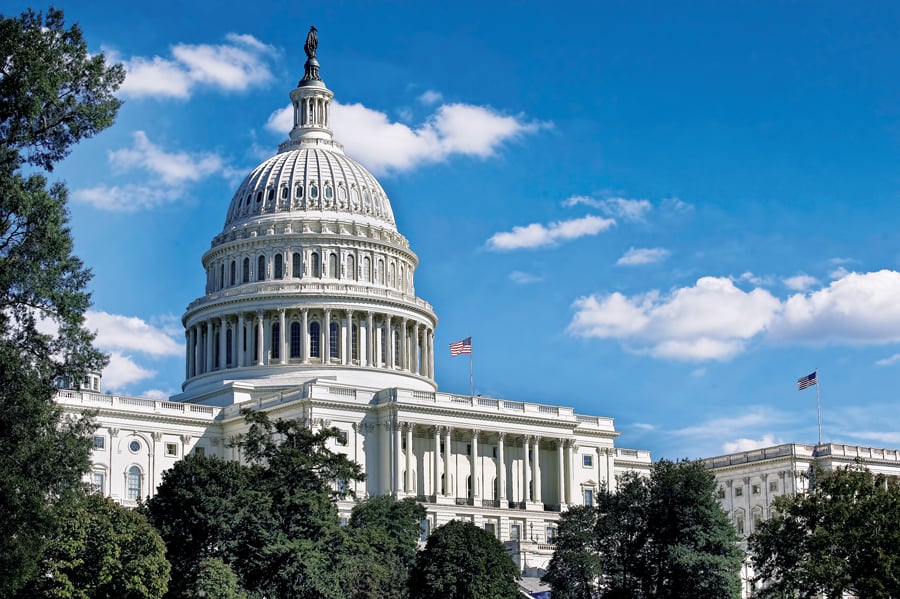

Legislation that would increase regulation of advisory firms that manage wealthy families’ finances is heading to the House floor with only Democratic backing.
The Democratic majority on the House Financial Services Committee on Thursday evening approved the bill on a party-line vote. It would require family offices with more than $750 million in assets under management to register with the Securities and Exchange Commission. Under current law, family offices are exempt from SEC registration.
Written by Rep. Alexandria Ocasio-Cortez, D-N.Y., the bill also would require any family office with less than $750 million to register with the SEC if it is highly leveraged or engages in “high risk activities.”
Another provision would ban from family offices people who had been barred from the financial industry or who are the target of final SEC orders involving fraud, manipulation or deceit. The bill also would end the SEC registration exemption for family offices that include investors who are non-family members, according to a summary of the bill.
The measure is designed to give the SEC more information about the size, portfolios and leverage taken on by family offices while allowing the agency to tailor reporting requirements. It is the first legislative response to the collapse last spring of Archegos Capital Management, which defaulted on $20 billion in swaps transactions and caused nearly $10 billion in losses for major investment banks.
Ocasio-Cortez said the bill would close a loophole that allows family offices to operate in the dark and potentially threaten financial market stability. She and other Democrats cited statistics showing that family offices manage $6 trillion in assets, making them bigger than private equity and venture capital funds combined.
“This is a rather commonsense provision,” Ocasio-Cortez said during committee debate. “If we want to prevent systemic risk, I believe it is imminently reasonable that a family office that holds almost a billion dollars in assets simply register with the SEC. And if you have less than $750 million in assets but you are extremely highly leveraged or engaged in very high-risk activities, I think the bare minimum is to require registration with the SEC.”
She also expressed concern that family offices are utilized by wealthy individuals to protect their fortunes from taxation.
“Tech titans and the ultra-rich use family offices to exacerbate inequality and leverage tax advantages,” Ocasio-Cortez said.
Republicans were wary of overhauling family office rules. Rep. Ann Wagner, R-Mo., said it opened the door for the government to peer into a family’s finances.
“Are you concerned by the privacy implications that this bill raises with respect to families managing their own money?” Wagner asked Ocasio-Cortez.
Rep. Bill Huizenga, R-Mich., said there’s no conflict of interest surrounding families investing their own money.
“You can’t steal from yourself,” Huizenga said. “We’re trying to go at the wrong target.”
It’s unclear when the family office bill will be voted on by the whole House. It’s certain to pass, given the House’s Democratic majority. But the pushback from GOP members of the committee signals that it faces difficult political terrain in the Senate, where Republicans can block most Democratic legislation with a filibuster.
On Thursday, committee Democrats also approved bills that resulted from the panel’s hearings earlier this year on the trading frenzy over GameStop, AMC and other so-called meme stocks.
Partisan tensions emerged over measures that direct the SEC to study brokerages’ use of payment for order flow and authorize the Government Accountability Office to study the gamification of investing.
For instance, the parties could not agree on language to instruct the SEC to review whether investors might not get the best price for their trades when a firm like Robinhood accepts payments from another broker for executing the trades.
Republicans asserted that the bill did not mention the benefits of payment for order flow — such as lowering or eliminating commissions — and encouraged the SEC to ban the practice.
Democrats insisted the bill focused on the SEC study and gave the agency the option to write a rule. They opposed a GOP amendment they said would stall an SEC rule.
During the committee's GameStop hearings, the panel heard “that so many investors are being told that they’re getting best execution when other investors are getting best execution plus price improvement. Why we would accept such a system, I don’t know,” said the bill’s author, Rep. Brad Sherman, D-Calif. “It’s time for the SEC to move forward in this area at least with a study.”

Relationships are key to our business but advisors are often slow to engage in specific activities designed to foster them.

Whichever path you go down, act now while you're still in control.

Pro-bitcoin professionals, however, say the cryptocurrency has ushered in change.

“LPL has evolved significantly over the last decade and still wants to scale up,” says one industry executive.

Survey findings from the Nationwide Retirement Institute offers pearls of planning wisdom from 60- to 65-year-olds, as well as insights into concerns.
Streamline your outreach with Aidentified's AI-driven solutions
This season’s market volatility: Positioning for rate relief, income growth and the AI rebound
